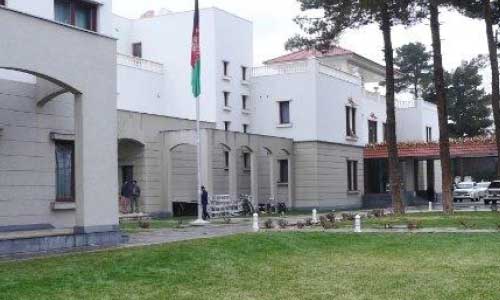KABUL - Analysts on Monday criticized Abdullah Abdullah, head of the High Council for National Reconciliation, for the delay in making the council fully staffed and functional, saying that Abdullah is spending his time on foreign trips rather than focusing on filling the posts of the council's membership.
The analysts said that Abdullah should first establish a national consensus on the peace process and then opt for international trips to boost regional consensus on Afghan peace.
Abdullah traveled to Pakistan, India, Iran, Uzbekistan and Turkey in the last two months to attract more regional support to the Afghan peace process.
“Dr Abdullah’s trips are important at a regional level, but it was more important that he establish the Reconciliation Council first. The council should have presented strategy and policy,” said Faizullah Jalal, a university lecturer.
“Mr. Abdullah had some achievements on his trips, but he should have expedited the activity of the council,” said Malalai Shinwari, former MP.
The High Council for National Reconciliation said the formation of the leadership of the council with 46 members will be announced in the near future.
But some politicians--who, according to sources, are not part of the council--said they have not been consulted about this matter.
“Our name was removed due to the critical views we held. Now we are hearing once again that our name is included, but, so far, we have not received any official notice,” said Rahmatullah Nabil, former head of the National Directorate of Security.
“The concern of the Hizb-e-Islami leadership is that the High Council for National Reconciliation might make a political bargain in the appointment of its members, instead of keeping an open discussion,” said Hafiz-Ur-Rahman Naqi, member of Hizb-e-Islami led by Gulbuddin Hekmatyar.
In August, President Ghani in a decree announced 45 politicians as members of the leadership of the High Council for National Reconciliation, but the decision was rejected by Abdullah, who said he has the authority to appoint members of the council, not the president.
“Mr. Abdullah might not have the ability take on this responsibility,” said Hamza Nuristani, an analyst, referring to the appointment of the council leadership.
“Afghans will face more hardships if they don’t end disputes,” said Noor Ahmad Nasiri, political affairs analyst.
This comes as the EU, the UK and US embassy in Kabul called for “urgent establishment” and "operationalization" of the Reconciliation Council. (TOLO NEWS)
Home » Afghanistan » Abdullah Faces Criticism for Incomplete Reconciliation Council
Abdullah Faces Criticism for Incomplete Reconciliation Council

